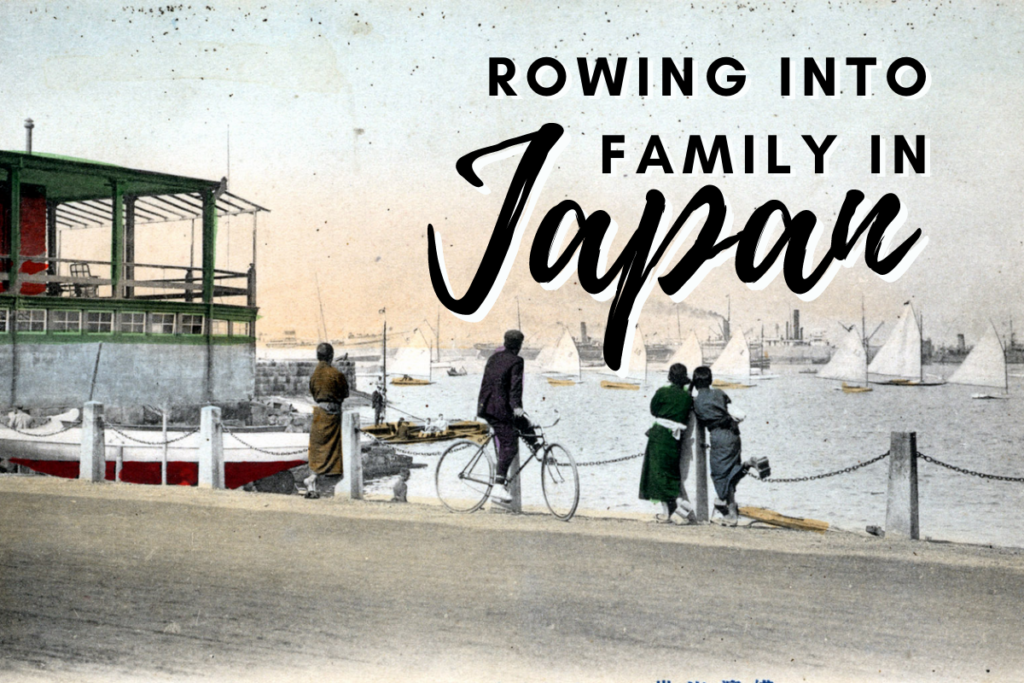
Rowing into Family in Japan
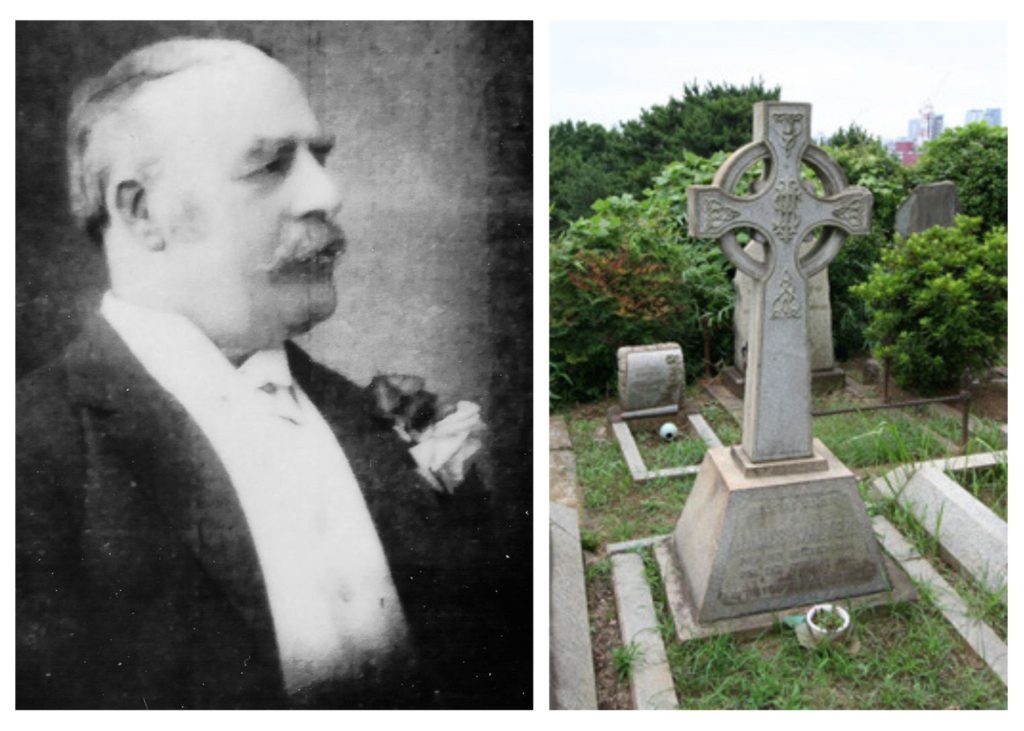
I have limited knowledge of my ancestry. I know where I was born (South Africa) and where my parents were born (also South Africa). My mother’s side of the family tree always seemed the most international and exotic, although there are rumours of circuses on my father’s side. My maternal great grandfather was a silk merchant in Japan. He is buried in Yokohama. My grandfather was born there in 1890. He met my grandmother in Menton on the French Riviera (where I honeymooned, by coincidence) and soon after became a bank manger in China. A radical career switch saw him become a citrus farmer in the Eastern Cape of South Africa, where my Mum was born.
Imagine my curiosity when on a visit to Nova Scotia to see my Mum, she gave me a small silver trophy that my grandfather won in a rowing regatta in Yokohama in 1909. What! Wait! My grandfather was a rower?! Up to then, I thought that I was the only rower in my entire family.
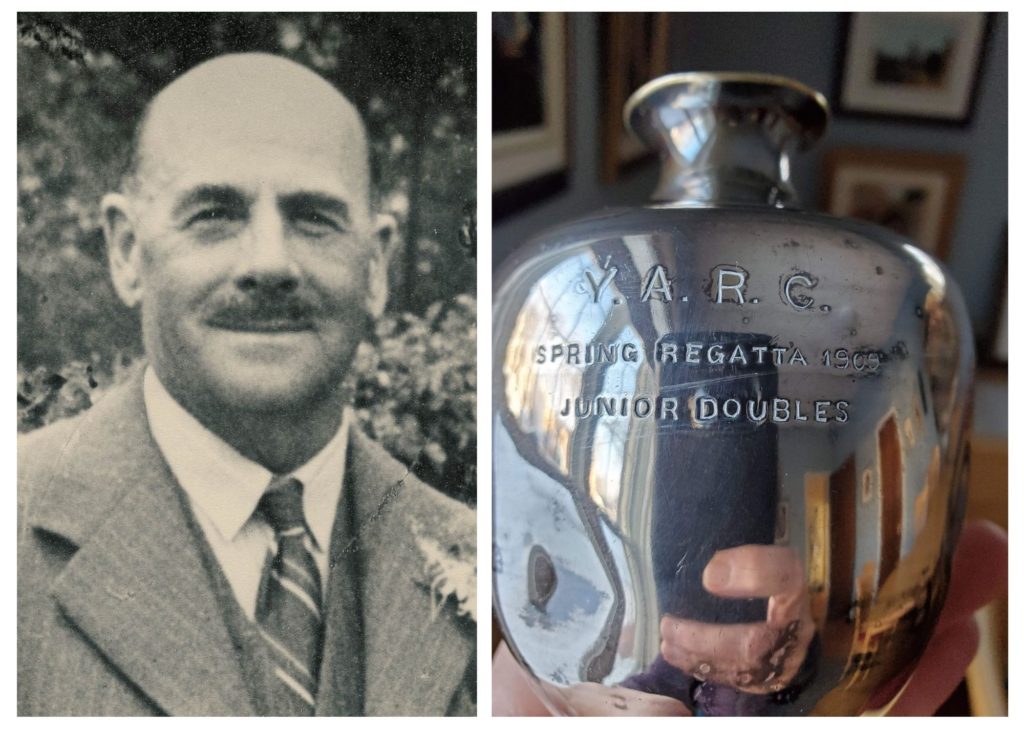
Grandfather rowing in Japan
The rowing cup has sat on my fireplace mantel for years. My interest in my grandfather and rowing in Japan has been recently rekindled. I am beginning to plan a rowing trip there for 2022.
The inscription on the trophy reads:
Y.A.R.C
Spring Regatta 1909
Junior Doubles
Y.A.R.C. stands for Yokohama Amateur Rowing Club. I am tickled that my grandfather’s trophy is in the double, my favourite boat. The year 1909 is curious. My grandfather would have been 19 that year, just out of the Junior category. Unless of course he was still 18 in the spring when the regatta was held. Or maybe there was a different definition of a junior back then and in Japan.
More curious is that this trophy is the only reference that I can find to my grandfather’s rowing career. My brother, who knows more about family history than I do and is likely a better internet searcher, also could not find any references to James Hebdon Walter rowing in Japan. Did he have a brief but glorious rowing history? Perhaps he rowed for many years but the record from over a century ago is lost. Perhaps he rowed for many years after that regatta win, not competing or at least not winning. I can relate to that. I train as much as I can during our short season and improving fitness and technique is important to me. But I don’t race, perhaps like quite a few masters rowers. Could that be something that I share with my grandfather too?
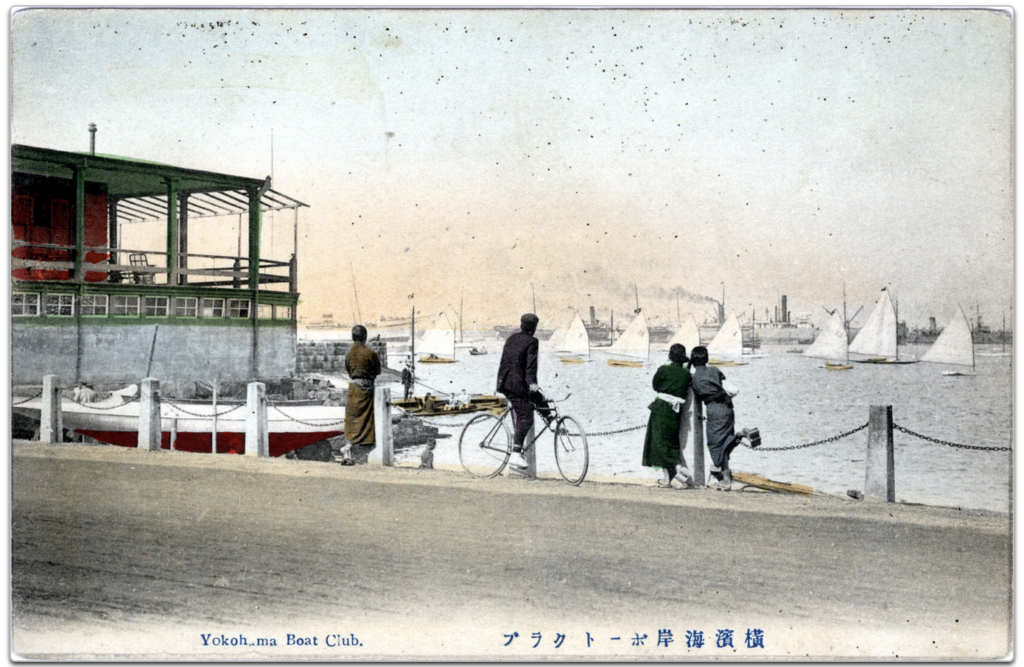
Yokohama Amateur Rowing Club
The Yokohama Amateur Rowing Club no longer exists.
Although we do not know exactly when the club was established, a club called the ‘Barge Club’ charged twelve dollars for the use of boats and yachts every season. The ‘Barge Club’ is thought to be the predecessor of the Yokohama Amateur Rowing Club (YARC), established in 1871. The club organized an autumn and spring regatta. The regattas were some of the biggest events in Yokohama, and were attended by almost all the expatriate settlers. Starting in 1871, YARC held an inter-port race with the KRAC (Kobe Regatta and Athletic Club). Other clubs started joining in the race held twice a year, with the distance of the race between three quarters of a mile and one mile. The YARC was one of the largest sports clubs in Yokohama, growing from 101 members in 1878 to 300 in 1895. Thus, the YARC became the heart of rowing in eastern Japan.
Source: https://visualtokyo.omeka.fas.harvard.edu/exhibits/show/the-history-of-rowing-in-japan/introducing-rowing-to-japan
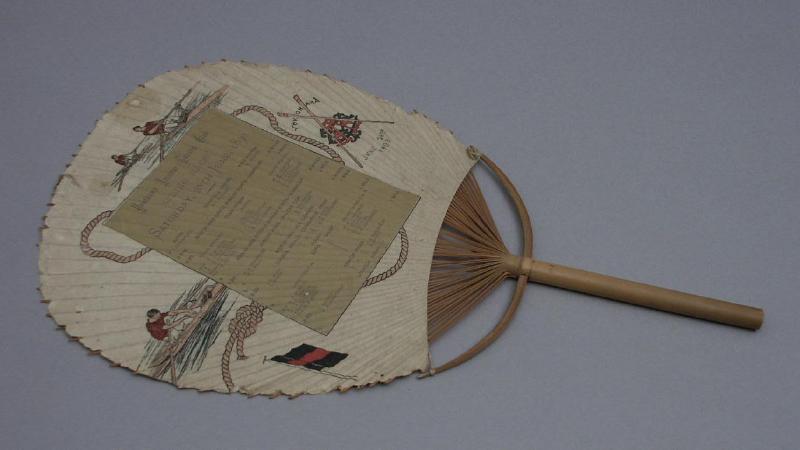
Newspapers from the early 1900’s offer detailed records of the Annual General Meetings of the Y.A.R.C. The club struggled over the years financially, compounded by declining membership. After 1914 I could not find any more AGM references, but like my grandfather’s rowing, the absence of records may not mean the absence of activity.
There is a surprising mention of the Y.A.R.C. from World War II. The club was used to house Australian prisoner-of-war nurses captured in Papua New Guinea. Pretty sure that they were not taking doubles out for a spin. Perhaps the war was the end of the club or maybe it had folded previously? Y.A.R.C. was located on the waterfront, on Tokyo Bay. It is definitely no longer there. Checking Google Maps for the Y.A.R.C. address brings up the Yokohama Truck and Bus Centre. Modern day rowing clubs in Yokohama are located on the Tsurumi River.
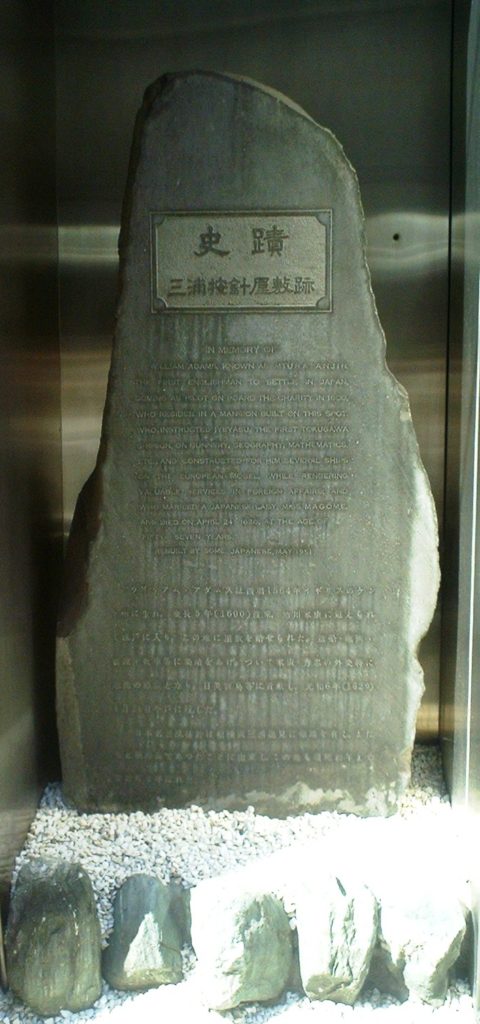
Speculation and Imagination
While I was not successful in finding much on my family’s real connection to rowing in Japan, my research took me on a wonderful imaginary journey. Although my grandfather continued to live in Yokohama into the 1920’s working for the International Banking Corporation (interestingly the pre-cursor to present day Citi Bank), he and his new bride took up residence in Shanghai as he continued his career in banking. In the 1920’s and 1930’s there was an active rowing club on Shuzou Creek. Could he have been a member? Certainly, the Fish River in South Africa where his citrus farm was located was not suitable for rowing, being prone to drought and flash floods. I do have fond memories of rowing in South Africa, even if my grandfather never dipped an oar there.
I also found some fascinating snippets about my great-grandfather. He was known as “Warari-san” to his Japanese friends. His name appears in the book The Fan Tree Company: Three Swiss Merchants in Asia by Friedermann Bartu. The fan tree company is DKSH, a Swiss multi-national which got its start in Yokohama in the silk trade as Siber & Brennwald. It appears that the silk trade is a fascinating aspect of Japan’s history that my family was part of. Clearly, I need to do some more background reading on Japan before I travel there.
My great-grandfather’s greatest claim to fame seems to be as the discoverer of the grave of Will Adams and champion to erect a memorial to Adams and his Japanese wife, which can be found at a temple in Yokosuka. Williams Adams, known in Japanese as Miura Anjin was an English navigator who, in 1600, was the first Englishman to reach Japan. He led an astonishing life, including becoming a western samurai, establishing an English trading company to rival the Dutch and leading multiple expeditions. Definitely would have been some rowing involved, although not what my grandfather practiced. The final thing that I noted was that my great-grandfather died in 1909, the same year that my grandfather won his rowing cup.
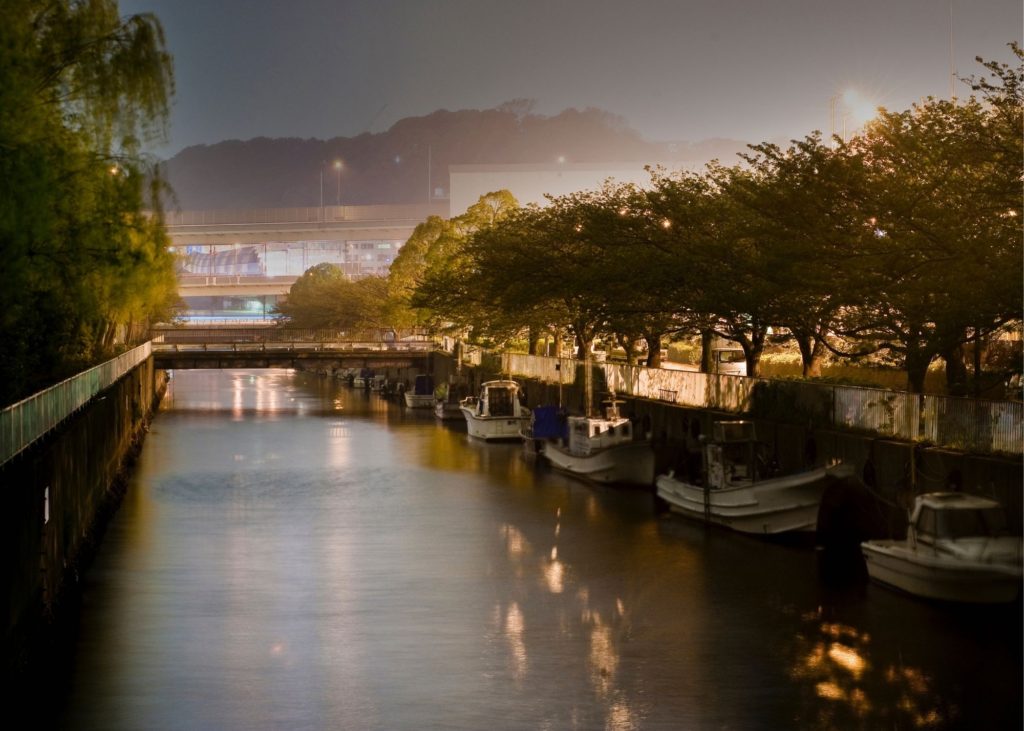
Granddaughter rowing in Japan
If all works out, I will be rowing in Japan in 2022. While our tentative tour plans do not include Yokohama, I will definitely make a detour there. I would like to see Tokyo Bay, where the Y.A.R.C. stood. Perhaps I can get out in a double on the Tsurumi River. I would be curious to see my great-grandfather’s grave.
Before my great-grandfather married my great-grandmother, he had a Japanese wife, with whom he had children. Which means that I have very distant Japanese relatives. I wonder if any of them are rowers?
I am working with J-Team to plan Rowing The World’s tour to Japan in 2022. After reading this post, Geraint Holt sent a note to say:
“Thanks for the mail and link – the blog-post was a joy to read. I recognized the graveyard immediately – as one does! – the Foreign Cemetery in Yokohama is attached to the Church where I was married and is now ‘home’ to a very good (Japanese) friend and her (scottish) husband (whom we never knew, but like you, have imagined-back-to-life on many occasions). It’s a place I love wondering through, partly as it helps to understand what was going on in late 19th and early-20th century Japan, but mainly because it’s so eclectic, with Jewish, Russian and (I’m fairly sure) Arab areas, all embellished with gravestones appropriate to those sects and religions. And, it was ripped open by the Great Kanto Earthquake in 1923, with damage from that still visible.
My wife is from Yokohama and we lived there for 20 years (8 with a view directly onto the graveyard, which when compared to the alternative of panoramas of high-rises, is not nearly as bad as it sounds), so part of my heart still resides there, and a lot of my reading is related to the city’s history. The original YARC location is best referred to as ‘behind Yokohama Red Cross Hospital’, as that’s the best-known landmark in that area.
The POW element was also fascinating as my original interest in Japan was stoked by a cousin of my father who was a POW here (in his case near Hiroshima). I’d never realized there were POWs held in Yokohama which sounds like another alley to dive into.”
Thanks Geraint! Looking forward to learning more and a double-skulls on the Tsurumi River!
A lovely read. Wishing you a great rowing tour in Japan.
Thank you Aparna.
Fascinating history you have there Ruth. I look forward to see how the Japan trip evolves.
Thank you Alix. We will definitely let you know as the trip develops. It would be terrific to travel with you there!
Thank you for sharing your quest in learning about your ancestors, Japan and rowing. Honored to be invited on this rowing adventure.
Thanks Marieta!